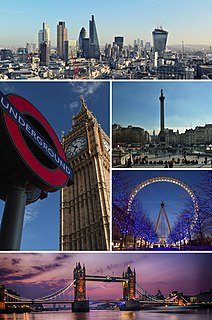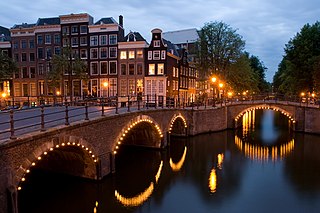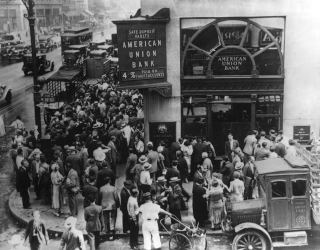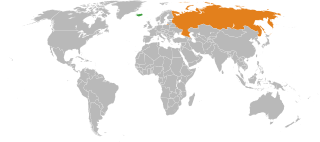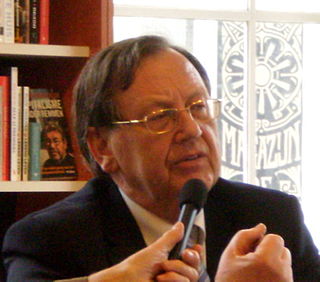 |
|---|
| This article is part of a series on the politics and government of Iceland |
| Constitution |
Institutions |
The Icelandic loan guarantees referendum, also known as the Icesave referendum (Icelandic: Þjóðaratkvæðagreiðsla um Icesave), was held in Iceland on 6 March 2010. [1]

Icelandic is a North Germanic language spoken in Iceland. Along with Faroese, Norn, and Western Norwegian it formerly constituted West Nordic; while Danish, Eastern Norwegian and Swedish constituted East Nordic. Modern Norwegian Bokmål is influenced by both groups, leading the Nordic languages to be divided into mainland Scandinavian languages and Insular Nordic. Historically, it was the westernmost of the Indo-European languages until the Portuguese settlement in the Azores.
Contents
- Background
- Loan agreement
- First Icesave bill
- Second Icesave bill
- Reactions before the referendum
- Results
- Notes
- See also
- References
- External links
The referendum was held to approve the terms of a state guarantee on the obligation of the Depositors' and Investors' Guarantee Fund (Tryggingarsjóður innstæðueigenda og fjárfesta), in particular a €3.8 billion loan (€11,964 per person) from the governments of the United Kingdom and the Netherlands to cover deposit insurance obligations in those countries. [2] [3] The referendum was held under article 26 of the Constitution of Iceland after President Ólafur Ragnar Grímsson refused to counter-sign the corresponding Act of Parliament (known as the second Icesave bill) into law on 5 January 2010. [4] The proposal was resoundingly defeated, with 98% voting against and less than 2% in favor.
The Depositors' and Investors' Guarantee Fund is the statutory deposit insurance scheme in Iceland. It is established under Act No. 98/1999 on Deposit Guarantees and Investor-Compensation Scheme, which transposes European Union directives 94/19/EC and 97/9/EC into Icelandic law, in accordance with the decisions of the European Economic Area.
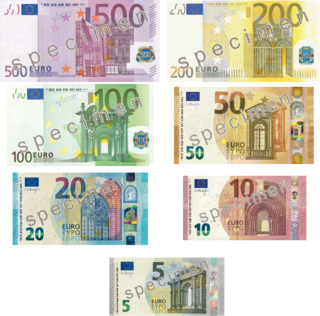
The euro is the official currency of 19 of the 28 member states of the European Union. This group of states is known as the eurozone or euro area, and counts about 343 million citizens as of 2019. The euro is the second largest and second most traded currency in the foreign exchange market after the United States dollar. The euro is subdivided into 100 cents.

The United Kingdom (UK), officially the United Kingdom of Great Britain and Northern Ireland, and sometimes referred to as Britain, is a sovereign country located off the north-western coast of the European mainland. The United Kingdom includes the island of Great Britain, the north-eastern part of the island of Ireland, and many smaller islands. Northern Ireland is the only part of the United Kingdom that shares a land border with another sovereign state, the Republic of Ireland. Apart from this land border, the United Kingdom is surrounded by the Atlantic Ocean, with the North Sea to the east, the English Channel to the south and the Celtic Sea to the south-west, giving it the 12th-longest coastline in the world. The Irish Sea lies between Great Britain and Ireland. With an area of 242,500 square kilometres (93,600 sq mi), the United Kingdom is the 78th-largest sovereign state in the world. It is also the 22nd-most populous country, with an estimated 66.0 million inhabitants in 2017.
The referendum was the first to be held in Iceland since 1944, and required special legislation. The Althing (Iceland's parliament) approved a motion on 8 January 2010 which called for the referendum to be held by 6 March at the latest. The motion passed by 49–0 with 14 abstentions. [5] The date of the referendum was later set for 6 March. [1]

The Alþingi is the national parliament of Iceland. It is the oldest surviving parliament in the world, a claim shared by Tynwald. The Althing was founded in 930 at Þingvellir, situated approximately 45 kilometres (28 mi) east of what later became the country's capital, Reykjavík. Even after Iceland's union with Norway in 1262, the Althing still held its sessions at Þingvellir until 1800, when it was discontinued for 45 years. It was restored in 1844 and moved to Reykjavík, where it has resided ever since. The present parliament building, the Alþingishús, was built in 1881, made of hewn Icelandic stone.

